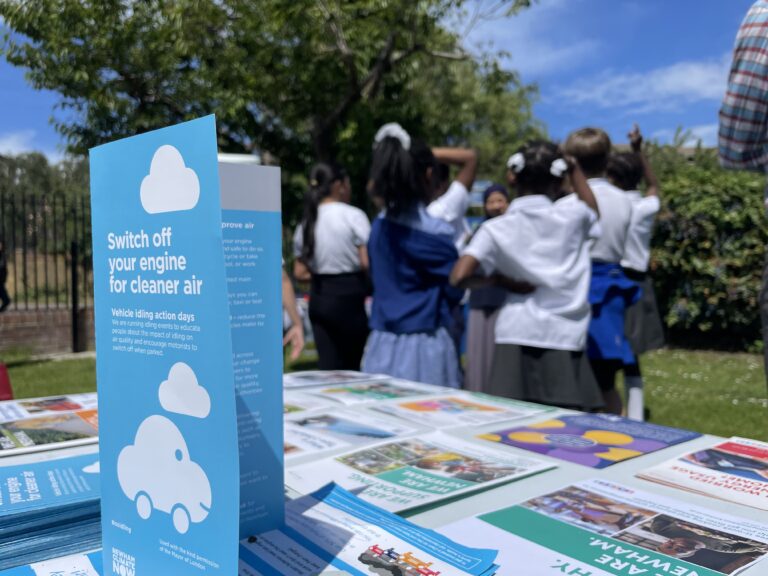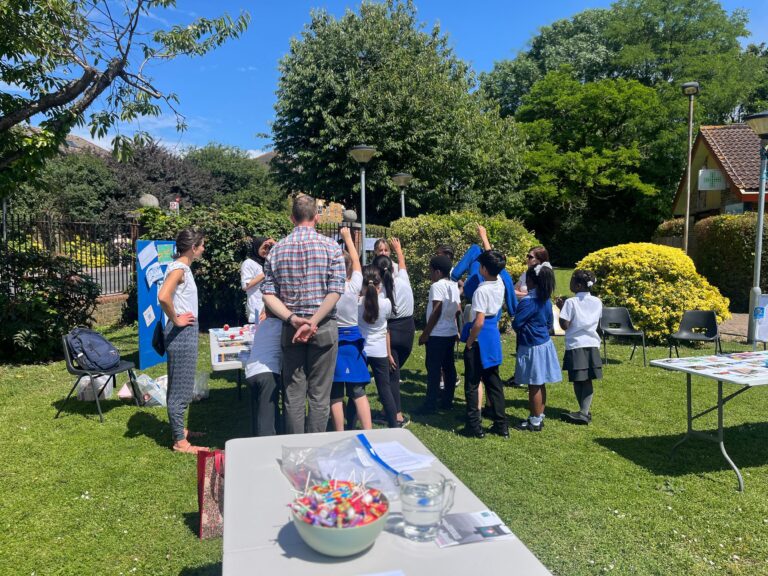Climate Emergency
At Tollgate Medical Centre, we declare a climate and ecological emergency because we recognise that climate change is the greatest threat to the health and wellbeing of our patients, staff, and community, now and for future generations.
As healthcare providers, we understand that climate change impacts health directly and indirectly, exacerbating existing health inequalities and creating new challenges. We commit to taking urgent and meaningful action to address this crisis.
- To publicly acknowledge the climate emergency and raise awareness of its health impacts within our surgery and community.
- To embed sustainability and climate considerations into all aspects of our practice operations, including energy use, waste management, prescribing, travel, and procurement.
- To actively pursue a path towards becoming a carbon net-zero practice, aligned with the NHS Net Zero goals.
- To involve our staff and patients by promoting education and engagement around sustainable health practices.
- To monitor and report on our environmental impact transparently and regularly.
- To collaborate with local health partners, organisations, and policymakers to encourage stronger climate action throughout the health system.
We believe that protecting the health of our community means protecting the health of our planet. By declaring this emergency, we recommit ourselves to urgent and responsible environmental stewardship as an integral part of our duty of care.
Signed: Dr Laura Scott, Managing Partner GP
Date: 11th September 2025
Carbon Footprint
The NHS is responsible for 4-5% of the UK’s carbon footprint. Some of this footprint lies in buildings but also includes areas like transport and medications.
To have a 50% chance of avoiding the consequences of >1.5°C of warming, global carbon emissions will have to reach net-zero by 2050. The NHS has committed to meeting Net Zero on direct emissions by 2040.
Greener Impact for Health Toolkit

Tollgate is using the ‘Green Impact for Healthcare Toolkit’ to help us reduce our environmental impact. We’re very proud of this work and are delighted to have been awarded a GOLD Award.
Green Impact for Health | Green Impact | Students Organising for Sustainability
The more work we do in this area the more we realise that what is best for our planet is also best for our health.
Air Quality
Tollgate Road is a busy road plus it lies between the A13, the A1020 and City Airport. Newham as a borough has some of the worst air quality in the country. In 2020 Tollgate was successful in a bid for a Breathe London air quality monitor. This monitor is up on Tollgate Rd at the Ellen Wilkinson Primary School. You can see the live pollution levels here: Breathe London Communities (Search Ellen Wilkinson node)
You can find out more on air quality and what actions we can take here:
Clean Air Hub | Global Action Plan
You can sign up to free air quality emails or texts: airText – Sign up to airTEXT alerts


Gardening Group
Looking after and enjoying nature is key to environmental sustainability. Tollgate gardening group, started in 2025 is running in the spring and summer months for all Tollgate patients (no need for previous experience).
Gardening Group – Tollgate Medical Centre



Inhaler Medication
Did you know that having really good asthma control and your choice of inhaler device can help our environment? Have a look at the following leaflet: Patient leaflet: Asthma Inhalers – Greener Practice
If you would like to talk to one of our team about greener asthma care please submit an online form requesting a pharmacist appointment.
Health In Hot Weather Events
Extreme heat events pose increasing risks to public health.
Beat the heat: hot weather advice – GOV.UK
You may be more vulnerable to heat related illness if you belong to one of the following groups:
Over 65 years, heart disease, lung disease, dementia, diabetes, obesity, Parkinson’s or mobility problems, severe mental health conditions, high blood pressure, learning disabilities, kidney disease, substance-dependence (including alcohol). People already ill and dehydrated eg D&V. People who are experiencing homelessness, or who work/exercise outside, manual labourers. Pregnant women, children under 5 and people who are socially isolated.
What to do in very hot weather:
- Close windows when outdoor temperatures are higher than indoor temperatures (e.g. during the day).
- Close any external shutters or shades, blinds and curtains – this keeps cooler air in, and hotter air out.
- Close and shade windows early in the morning so that the heat does not build up.
- Where air conditioning is used, keep the windows closed to keep the cooler air inside.
- Use fans if ambient temperature below 35°C – if temperatures are higher than this, fans can raise body temperatures.
- Stay hydrated with water
- Remove or minimise sources of excess heat (e.g., unnecessary electrical equipment)
- Do not leave medications directly exposed to sunlight (particularly inhalers and EpiPens). Most non-refrigerated medicines are meant to be stored below 25 degrees.
- Reduce physical exertion.
- Promote regular cool showers, baths or body washes.
- Wear light, loose-fitting clothes that absorb sweat and prevent skin irritation.
- For bed bound patients, sprinkle clothes with water regularly and splash cool water on individuals’ faces and the backs of their necks
- Eat cold food, particularly salads, fruit and ice-lollies which have a high-water content.
- Prioritise civility – in extreme heat humans become more irritable.
Signs and symptoms of heat related illness:
- Heat exhaustion: heavy sweating, weakness, dizziness, nausea, headache
- Heatstroke: confusion, loss of consciousness, high temperature, dry and hot skin, seizures
- Dehydration: excessive thirst, dark urine, reduced urine output, dry mouth and lips, fatigue